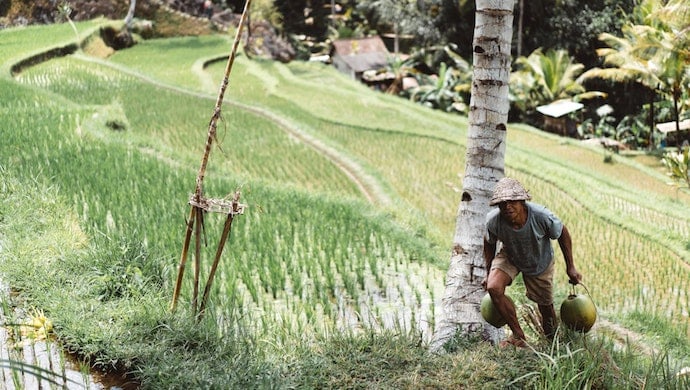
Asia’s 450 million smallholder farmers produce 80 per cent of the food consumed in the region and face increasing pressure to deliver sufficient, nutritious foods to a predicted regional population of five billion by 2050.
But climate-induced erratic weather patterns are threatening their ability to keep up with the demand. In India, the groundwater supply that is essential for agriculture has been steadily declining for years.
Coupled with erratic monsoon seasons and droughts, hundreds of millions of people’s livelihoods and food security are under. Southeast Asian farmers are also particularly vulnerable to changing rainfall patterns and warming temperatures due to the region’s location in the tropics.
Using a combination of crop protection products and digital tools such as artificial intelligence (AI), we can empower farmers to overcome the challenges of climate change and contribute to global food security.
Why technology matters
Since the Green Revolution of the 1960s, developments in plant science have led to crop protection products that allowed farmers to improve the resilience of their crops against pests, diseases and continue growing amidst difficult conditions such as drought or flooding caused by climate change. Compared with 1960, the world now produces 150 per cent of more food on only 13 per cent more land.
Without crop protection products, 40 per cent of global rice and maize harvests would be lost every year and losses for fruits and vegetables could be as high as 50-90 per cent.
In addition, the agriculture industry is increasingly developing AI to help farmers yield healthier crops, control pests, monitor soil and growing conditions, organise data for farmers, help with workload, and improve a wide range of agriculture-related tasks in the entire food supply chain.
Climate change is an ever-growing threat that is leading to severe floods, harsh droughts and heatwaves, violent storms. For farming to be truly sustainable, we need regenerative agricultural practices that prioritises the enhancement of soil health and proper management of water and fertiliser usage.
Also Read: E Green Global bags US$9.2M from Korean social impact VC fund to expand its agritech facility
Continued investments into AI and plant science can accelerate the development of new and better crop protection products that meets our farmers’ needs for sustainable solutions.
While the public sector has traditionally been the driving force behind agricultural R&D, the growth has been slowed recently in many countries due to fiscally constrained policies. The private sector has increasingly filled these gaps.
Today, private investment into agricultural innovation has led to new technologies and production techniques that significantly boost productivity.
How to support agri-tech developments
The acceleration of breakthrough agri-tech solutions is one of the key cornerstones of Syngenta’s sustainability objectives– the Good Growth Plan, which aims to help farmers adapt to and mitigate the impact of climate change through our investment of US$2 billion that will drive the development of agri-tech and improve our crop protection products.
As part of this investment, Syngenta Crop Protection acquired Valagro, a global biologicals firm, in 2020. They are the leaders in providing innovative and effective solutions for plant nutrition, and care and their solutions complemented our range of bio stimulants and bio controls. Together, we are working towards meeting our goal of developing effective yet environmentally conscious products.
We also recently announced a collaboration with Hong Kong-based Insilico Medicine, an AI and deep learning company to accelerate the invention and development of new, more effective crop protection solutions that protect crops from diseases, weeds, and pests protecting ecosystems.
By bringing new solutions to APAC farmers faster and more efficiently through innovation, Syngenta can help them meet the ongoing challenges they face to enhance productivity and meet the demand for affordable, quality food.
Also Read: 7 Asian startups putting the spotlight on agriculture
The COVID-19 crisis has further intensified the challenges in agriculture, and technology will be a more important solution than ever before.
Beyond developments in crop protection products, I believe we’ll continue seeing a focus on technology to enhance precision agriculture, data-driven farming and the development of tools that will meet consumers’ demand for higher-quality foods grown with lesser residue products.
–
Editor’s note: e27 aims to foster thought leadership by publishing contributions from the community. Become a thought leader in the community and share your opinions or ideas and earn a byline by submitting a post.
Join our e27 Telegram group, FB community or like the e27 Facebook page
Image credit: Joshua Newton on Unsplash
The post Need of the hour: How agritech platforms can protect farmers from climate change appeared first on e27.

